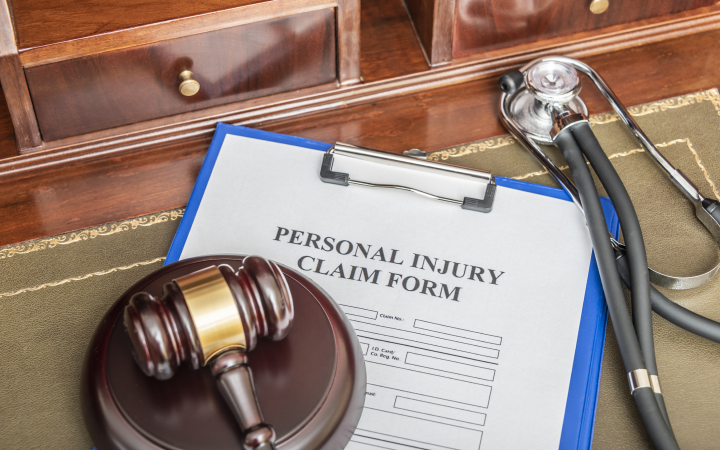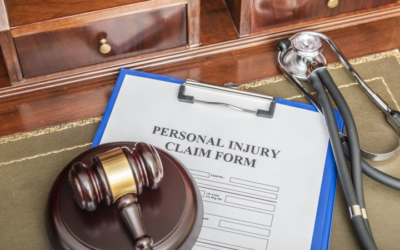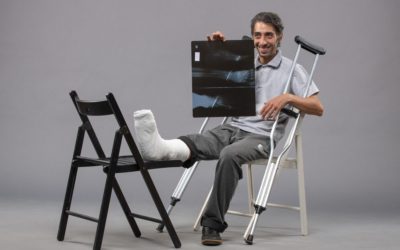A traumatic brain injury (TBI), even a mild one, can have lasting effects on an individual’s health and well-being. Many people involved in motor vehicle accidents may not realize they’ve sustained a TBI until symptoms worsen over time. Understanding the risks of repeated injuries and knowing where to seek brain injury legal advice is crucial for protecting your rights and health.
Research from both case law and medical journals makes it clear that although a mild traumatic brain injury (mTBI) may sound minor, it is far from a mild injury. The long-term consequences can be severe, and taking these injuries seriously is critical for both medical treatment and legal compensation.
What Is Traumatic Brain Injury (TBI) and Why It’s More Serious Than You Think
A traumatic brain injury (TBI) occurs when the brain is impacted by a sudden blow or jolt, which can happen during a motor vehicle accident or a fall. While some TBIs are severe, even mild TBIs can lead to significant physical, cognitive, and emotional complications. Symptoms like headaches, dizziness, fatigue, and memory loss may not seem urgent at first, but they can worsen if left untreated.
Symptoms of mild traumatic brain injuries (mTBI) can include dizziness, fatigue, headaches, ringing in the ears (tinnitus), sleeplessness, and loss of one or more senses. Not all symptoms are present in every case, but even partial symptoms can significantly affect a person’s daily functioning. Individuals may also experience issues with writing, drawing, concentration, and balance, which could impact their ability to walk. These injuries require attention as they may worsen over time if not treated properly.
Recognizing the Symptoms of a Motor Vehicle Accident Brain Injury
For individuals involved in motor vehicle accidents, symptoms of a brain injury may not be immediate. Common signs of a motor vehicle accident brain injury include:
- Persistent headaches
- Sensitivity to light or sound
- Difficulty concentrating or remembering things
- Mood swings or irritability
- Balance issues or dizziness
Research conducted by the Journal of International Neuropsychology found that 3 months post-injury, 24% of participants continued to experience persistent symptoms, with those having a history of previous head injuries or psychiatric issues being particularly vulnerable. In cases where post-concussion symptoms last longer than three years, full recovery is rare. A University of Toronto study indicated that only 27% of patients recovered fully, and those who did recover, did so within the first year.
It’s important to recognize these symptoms early and seek medical attention, as they could indicate a TBI. Ignoring these signs can lead to further complications, particularly if a second injury occurs before the first one has fully healed.
The Importance of Legal Help for Brain Injury Cases
Suffering from a TBI not only affects your health but can also lead to financial burdens due to medical costs and lost wages. This is where seeking legal help for brain injury cases becomes essential. If you’ve experienced a brain injury due to a motor vehicle accident, it’s vital to document your injuries and consult with an attorney who specializes in brain injury legal advice.
An experienced lawyer can help you navigate the complexities of personal injury claims, ensuring you receive proper compensation from insurance companies for your medical bills, rehabilitation, and loss of income.
Second Impact Syndrome (SIS) and the Dangers of Repeated Head Injuries
Second Impact Syndrome (SIS) occurs when a person suffers a second head injury before the symptoms of the first have fully resolved. This can lead to rapid brain swelling, which is often life-threatening. Even if the initial TBI seemed mild, the cumulative effect of a second impact can cause severe and permanent brain damage.
According to an article by Dr. David Xavier, Cifu, MD, SIS is a condition where a second head injury occurs before recovery from the first. Swelling of the brain can happen even after a seemingly mild blow. The consequences of repeated TBIs can increase the risk of later-life cognitive impairment and neurodegenerative diseases, such as Alzheimer’s disease (AD) and dementia, though not all studies show this connection.
It has also been suggested that repeated concussions can result in chronic traumatic encephalopathy (CTE), a degenerative brain condition that can cause dementia-like symptoms. CTE damages brain structures critical for memory and executive function.
Long-Term Effects of Traumatic Brain Injury
While some people recover from a TBI within weeks, others may experience long-term or even permanent symptoms. Repeated head injuries, especially those from motor vehicle accidents, have been linked to conditions like chronic traumatic encephalopathy (CTE). CTE can cause dementia-like symptoms, including memory loss, confusion, and mood changes.
Research has shown that individuals who suffer multiple TBIs are at greater risk for cognitive impairments and neurological diseases later in life. This underscores the importance of seeking immediate medical treatment and ongoing care if you’ve suffered a brain injury.
Brain Injury Legal Advice: How to Protect Your Rights
If you’ve suffered from a TBI, especially due to a motor vehicle accident, it’s important to understand your legal rights. Here are a few steps to ensure your rights are protected:
- Seek immediate medical attention: Always document your injuries and follow through with treatments recommended by your doctor.
- Keep detailed records: Include all medical reports, expenses, and communication with doctors, which will be essential if you need to file a personal injury claim.
- Consult a lawyer: Seek brain injury legal advice to understand your options. An experienced lawyer will help you negotiate with insurance companies and ensure you receive fair compensation.
- Understand your long-term needs: A TBI can lead to long-term effects, so your legal team should consider ongoing care costs in your compensation claim.
A lawyer who specializes in legal help for brain injury cases can make sure that you are fully compensated, and your needs are met as you recover from the trauma.
Seeking Compensation and Legal Help for Your Brain Injury
Recovering from a traumatic brain injury takes time, but having the right legal support can help ease the financial burden. Whether your injury was the result of a motor vehicle accident or another type of trauma, ensuring you receive fair compensation is crucial for your recovery. Seek legal help for brain injury cases as soon as possible to protect your rights and your future.
If you’ve suffered a TBI and are unsure of your legal options, contact an experienced brain injury lawyer today for a consultation.
Disclaimer
This article is intended for informational purposes only and is not intended to be used as legal or medical advice for any particular case. Every traumatic brain injury case is unique, and it is important to consult a qualified legal professional for personalized advice
FAQs
What evidence do I need to support my mTBI claim?
To support your mild traumatic brain injury (mTBI) claim, you will need thorough documentation that clearly establishes the extent of your injury and its impact on your life. Some key pieces of evidence include:
- Medical records: Detailed reports from doctors, including diagnoses, treatments, and any recommended follow-up care.
- Imaging tests: MRIs or CT scans to show any damage to the brain that may not be visible through X-rays.
- Doctor’s notes: Documentation of your symptoms over time, including headaches, dizziness, memory problems, and emotional or cognitive changes.
- Specialist evaluations: Reports from neurologists or other brain injury specialists to assess your condition.
- Treatment records: Details about any physical therapy, medications, or rehabilitation required for your recovery.
- Testimony from medical experts: In some cases, a medical expert may provide a written or verbal opinion about the severity of your injury and the long-term prognosis.
- Personal statements: Personal statements from you and your friends and family as well as your co-workers, is often helpful in demonstrating the changes you have experienced and how the injury is affecting your day-to-day life.
Gathering this evidence strengthens your case and helps ensure you receive the compensation you deserve.
How can a lawyer help me deal with insurance companies after a brain injury?
A lawyer plays a critical role in helping you navigate the complexities of dealing with insurance companies after a brain injury. Here’s how they can assist:
- Negotiating with insurers: Insurance companies often try to minimize payouts, especially in cases of mTBI where symptoms may not be immediately visible. A lawyer will negotiate on your behalf to secure a fair settlement that reflects the severity of your injury and covers all medical expenses, lost wages, and future care needs.
- Handling documentation: Lawyers ensure that all medical records, expert opinions, and other critical evidence are properly submitted to support your claim.
- Filing appeals: If the insurance company denies or undervalues your claim, a lawyer can file an appeal to fight for your rights and seek additional compensation.
- Protecting your rights: Insurance companies may use tactics to pressure you into accepting a low settlement. Your lawyer will protect your interests and ensure you are not rushed into accepting an offer that doesn’t cover all your expenses.
- Maximizing compensation: A lawyer can help you assess the full extent of your losses—both immediate and long-term—and push for compensation for not just medical costs but also lost wages, pain and suffering, and future medical care.
By having a lawyer handle the communication and negotiations, you can focus on your recovery while ensuring your claim is managed effectively.









